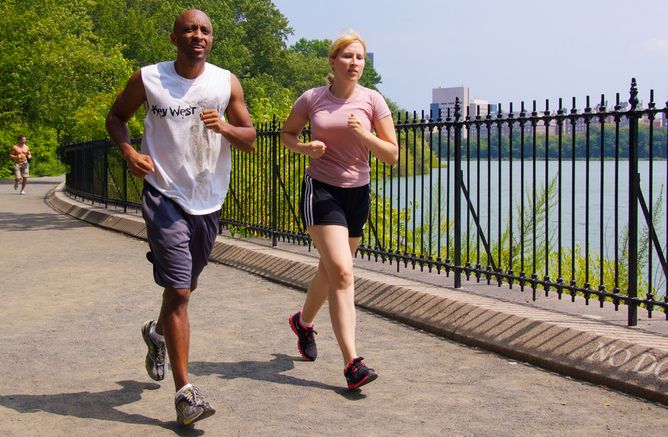
Struggling with that New Year's Resolution? How to Hang in There (Op-Ed)

This article was originally published at The Conversation. The publication contributed the article to LiveScience's Expert Voices: Op-Ed & Insights.
It’s a time of year when many of us have made resolutions. The New Year feels like an ideal time to kick those old habits and replace them with habits that we hope will make us thinner/richer/younger-looking/insert-desirable-state-of-your-own-here.
Of those who make New Year’s resolutions, only one in 12 will achieve them. So what can we do to maximise our chances of success?
Self-efficacy is an individual’s belief in their ability to perform a particular action. We can have different levels of self-efficacy in various aspects of our lives, such as in our social interactions and at work.
We also have self-efficacy regarding to our ability to eat well and exercise. As self-efficacy reflects a belief in yourself to achieve something, without it, we are unlikely to even attempt behaviour change.
Higher levels of self-efficacy are associated with improved achievements. It is because of this that psychologists are very interested in how self-efficacy influences health behaviours.
I think I can, I think I can…
Self-efficacy is more than just positive thinking. We can build our self-efficacy by:
Sign up for the Live Science daily newsletter now
Get the world’s most fascinating discoveries delivered straight to your inbox.
- watching others succeed (particularly if we think those people are similar to us)
- by receiving encouragement from others
- most importantly, through previous experience.
This is why when it comes to behaviour change, setting small achievable goals is important. For every small goal you achieve, you will get a boost to your self-efficacy.
But is self-efficacy enough when it comes to those New Year’s resolutions?
There’s a couple of things we can do to make the new habits stick and some things to consider before even trying to create a new world order!

First things first … are you really ready to to make a change? Or are you attempting this change because your significant other thinks you should?
The Stages of Change Model (also called the Transtheoretical Model) provides an explanation of why some people are ready – and others aren’t yet ready – to change their behaviour. Generally, people can be categorised as being into one of five possible stages of change:
- First, there is pre-contemplative, where the person is not ready to even think about changing (and, no, nagging will not make a difference)
- Contemplative is when the person is ready to start thinking about a change, which then evolves to
- Prepared to make a change in any given area of health behaviour. Obviously, it is individuals who are ready or prepared to make a change who are more likely to take that first step, whether it is buying a new pair of running shoes or calling the QUIT line
- Once you have started a new habit, then you are considered to be in the action (the early stages of a new habit) then
- maintenance (established new habit) stages. Regardless of how much others want you to kick an old habit or take up a new one, you have to be ready to make the change yourself.
So how do I make that resolution stick?
Lots of people are ready to make the change – so why is it that so many of us will end up back here at the beginning of 2015?
Resolutions often fail because we do not put into place a couple of things that can really help us – regardless of the habit to be kicked or gained.
First, work out exactly what you want to do. Don’t be wishy-washy or vague. If you say “I want to be more active”, it is difficult to know what you really mean, and you won’t know when you actually achieve it.
Will you take the stairs instead of the lift at work? Join a gym? Run a marathon? Being specific when changing your habits allows you to focus your attention and efforts on what you really want, and removes the temptation to make excuses (“I got up and down off the couch five times today so I don’t need to walk the dog”).

Second, set small steps for yourself. Make sure that you take these small steps regularly. This is where your self-efficacy boost comes in.
Start by buying new runners but then make sure you take the next small step, like walking around the block. Continue with each next small step – like progressing from walking one to two blocks, and then to a slow jog/crawl around the block – until you achieve whatever your goal is. Remember, self-efficacy can be built, and small steps will help you do that.
Last, set yourself up for success. Remove temptations like that sweets jar on the corner of your desk or the ice-cream in the freezer at home.
Try to make the habit you are aiming for easier by introducing a fruit bowl on your desk or sleeping in your running gear the night before. Ask a friend to join you for the ride – it’s much harder to make excuses to another warm body and more fun to do stuff with a friend.
Good luck!
The authors do not work for, consult to, own shares in or receive funding from any company or organisation that would benefit from this article. They also have no relevant affiliations.
This article was originally published at The Conversation. Read the original article. The views expressed are those of the author and do not necessarily reflect the views of the publisher. This version of the article was originally published on LiveScience.












